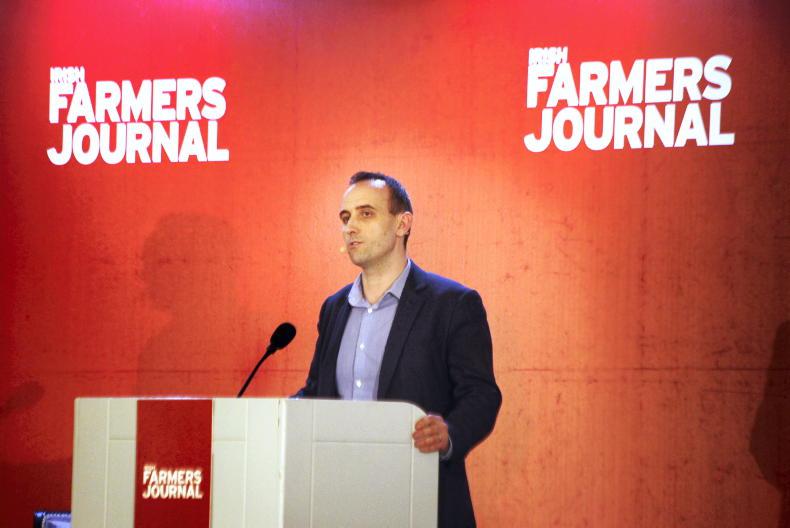Policy enabling the agriculture sector to meet a legally binding 25% reduction in emissions by 2030 will be adjusted if targets are not delivered upon, according to Minister for the Environment Eamon Ryan.
“The consequences first and foremost are that we have to adjust policy,” said the minister when asked about the repercussions for farmers if they don’t meet the legally binding target.
His department officials added that if the 25% reduction is not met, the deficit will be “carried forward” and added to a later carbon budget, meaning farmers in the following years will have to cut emissions further with more stringent measures.
The carbon budgets applied to all sectors are broken into five-year periods, from 2021-2025 and 2026-2030.
Department of Environment officials suggested that if agriculture is not making the required progress within its carbon budget to 2025, the deficit will have to be made up in the following five years.
However, when asked about intermediate budgets to get to the 25% reduction or what the target for 2025 will be, the officials were unable to provide clarity.
‘Green direction’
“The other consequences – one we have to be cognisant of, as well as our national law and plan, we are in a European Union which is setting ourselves in this green direction, putting it at the centre of everything that it does and also putting in real measures that countries have to abide by.
“We live within that European system and that will require us to meet the targets as well,” said Minister Ryan.
He described emissions cutting measures as “learning while doing and evolving and learning from other countries as well”.
Framework
Minister for Agriculture Charlie McConalogue said the new legally binding emissions ceiling of 25% “puts in place a very clear framework that puts pressure on all of us to make sure that we actually do make progress”.
Read more
Farm renewables won’t contribute to 25% emissions target
Emissions reduction target of 25% set for agriculture
Policy enabling the agriculture sector to meet a legally binding 25% reduction in emissions by 2030 will be adjusted if targets are not delivered upon, according to Minister for the Environment Eamon Ryan.
“The consequences first and foremost are that we have to adjust policy,” said the minister when asked about the repercussions for farmers if they don’t meet the legally binding target.
His department officials added that if the 25% reduction is not met, the deficit will be “carried forward” and added to a later carbon budget, meaning farmers in the following years will have to cut emissions further with more stringent measures.
The carbon budgets applied to all sectors are broken into five-year periods, from 2021-2025 and 2026-2030.
Department of Environment officials suggested that if agriculture is not making the required progress within its carbon budget to 2025, the deficit will have to be made up in the following five years.
However, when asked about intermediate budgets to get to the 25% reduction or what the target for 2025 will be, the officials were unable to provide clarity.
‘Green direction’
“The other consequences – one we have to be cognisant of, as well as our national law and plan, we are in a European Union which is setting ourselves in this green direction, putting it at the centre of everything that it does and also putting in real measures that countries have to abide by.
“We live within that European system and that will require us to meet the targets as well,” said Minister Ryan.
He described emissions cutting measures as “learning while doing and evolving and learning from other countries as well”.
Framework
Minister for Agriculture Charlie McConalogue said the new legally binding emissions ceiling of 25% “puts in place a very clear framework that puts pressure on all of us to make sure that we actually do make progress”.
Read more
Farm renewables won’t contribute to 25% emissions target
Emissions reduction target of 25% set for agriculture










SHARING OPTIONS